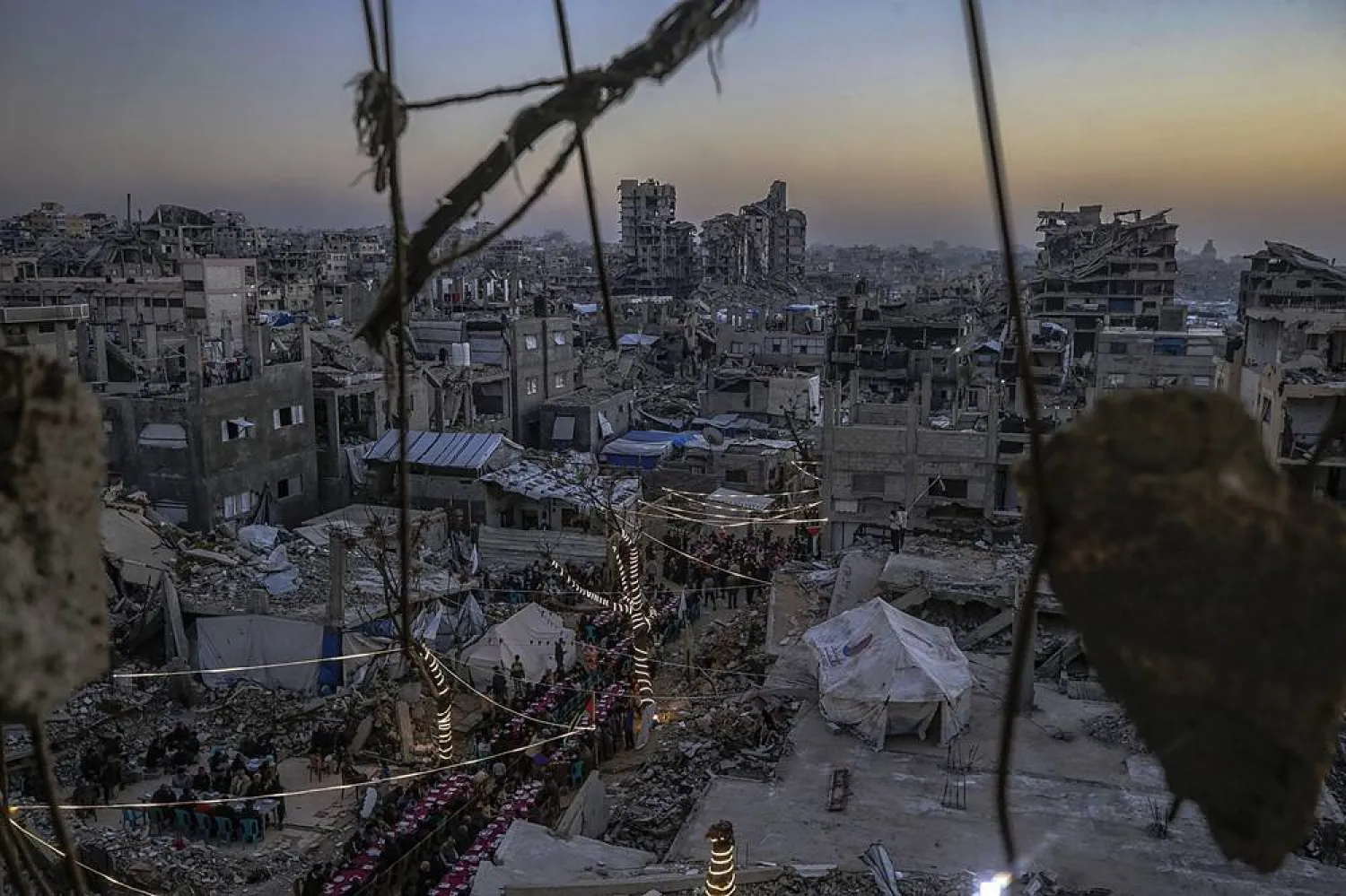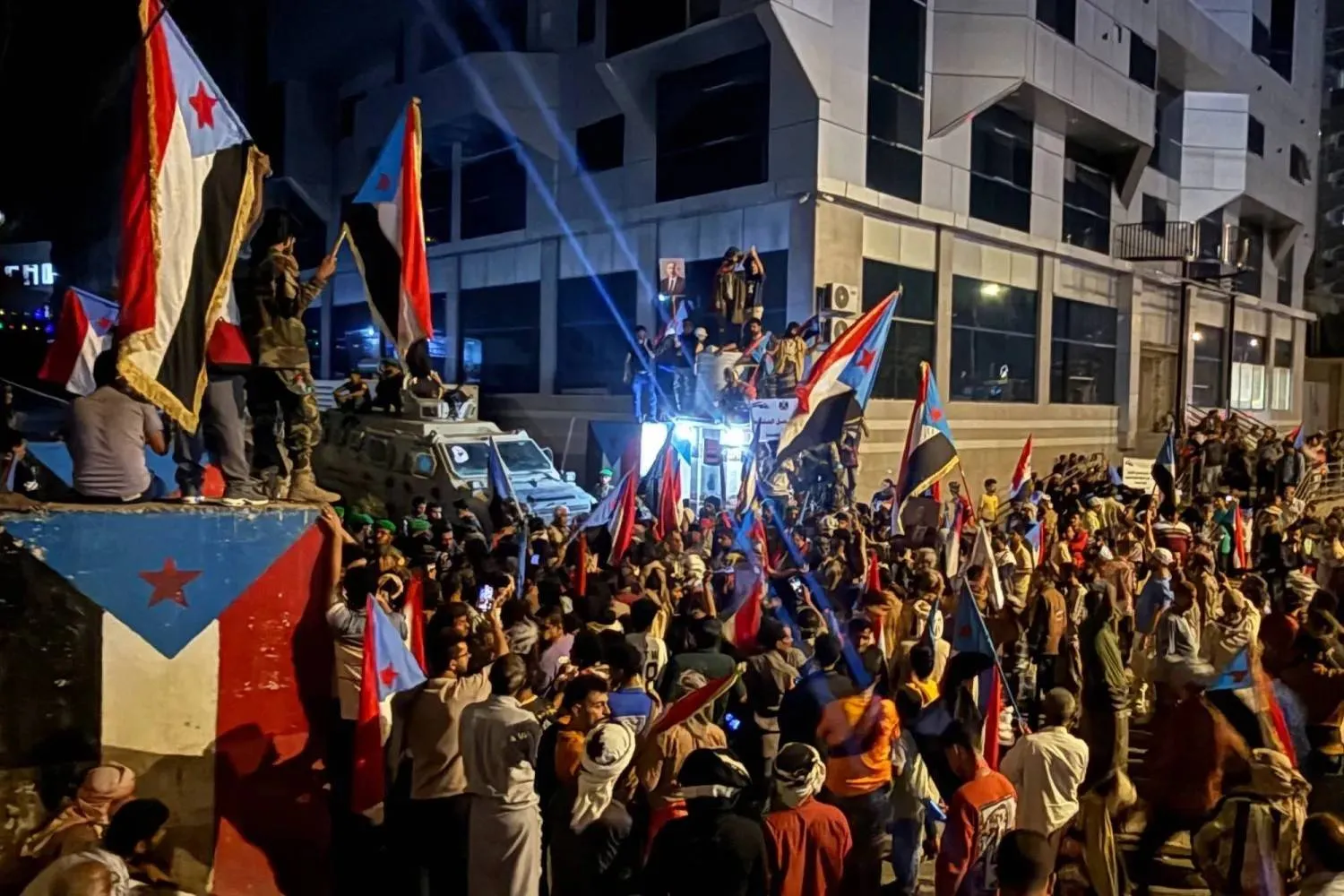The Iran-backed Houthi militias’ attack on the al-Dhabba oil terminal on Friday sparked outrage in Yemen and Arab and international condemnation.
The government said on Friday its forces had intercepted armed drones launched on the southern oil terminal in Hadramout province by the militias as an oil tanker was preparing to dock.
A Yemeni government official said Houthi drones attacked the oil terminal, located in the southern town of al-Shihr, as Nissos oil tanker was preparing to enter the terminal.
Yemeni observers believed that the attack was an “Iranian message” to threaten energy markets and trade routes.
The Houthis claimed responsibility for the attack, saying they sought to prevent the government from exporting oil.
The government responded by warning that “all options are open” to retaliate to the attack in what was understood as a sign that it could resume military operations that were halted by the nationwide ceasefire that was adopted on April 2. The truce expired in October after the Houthis refused to extend and expand it.
The government revealed that this was not the first Houthi attack against oil facilities in October. The militias had carried out attacks against the Radoum oil port in Shabwa on October 18 and 19, it said.
“The Houthis are clearly insistent on targeting civilian and trade installations in violation of international law,” said the government, describing the attacks as “blatant threats to regional and international energy supplies.”
It reiterated its keenness on providing the necessary conditions to reimpose the truce in the country and avert military escalation.
It warned, however, that the Houthis “are crossing all red lines,” citing their threats to neighboring countries and all oil companies in the region, and rejection of all peace initiatives “in pursuit of the agendas of the Iranian regime.”
Moreover, it warned that the Houthis are insisting on “paving the way for a new more criminal and severe phase in the war” that will have an even greater impact on the humanitarian situation in Yemen.
“All options are open in dealing with this Houthi terrorist attack and military escalation,” it added, calling on “all countries to take firm and strong measures to condemn the terrorist act and the Iranian regime behind it.”
Failure to do so will have negative repercussions on the peace process in Yemen and global energy supplies, the government warned.
Foreign Minister Ahmed Awad bin Mubarak carried out intense contacts with United Nations envoy Hans Grundberg, US envoy Tim Lenderking, Secretary-General of the Gulf Cooperation Council Dr. Nayef al-Hajraf and several European ambassadors to condemn the attack and pressure the Houthis to cease their violations.
The Houthis “have crossed all red lines,” he declared, urging the need to take a firm stance against this terrorist act.
Official sources said the FM discussed with Grundberg the repercussions of the attacks on al-Dhabba and Radoum, saying they undermine all international peace efforts.
The Houthis are delivering a message that they will never be partners in peace, but rather a terrorist group that threatens peace and stability in Yemen, the region and world, the state news agency Saba reported him as saying.
Bin Mubarak also held telephone talks with Lenderking to condemn the attack.
He called on the US and international community to take a firm stance against the terrorist Houthi threats and hold the perpetrators to account.
Widespread condemnation
The Houthi attacks were the first to target oil export ports on the Arabian Sea, drawing widespread Arab and international condemnation.
Egypt held the militias responsible for the escalation and impeding efforts to renew the nationwide truce.
It underscored the need for the Houthis to respond immediately with international and regional efforts to renew the truce in a way that would pave the way for a permanent ceasefire and political settlement in the country.
Egypt stressed its firm support to the unity of Yemen and its sovereignty over all its territories and solidarity with it against all threats.
The European Union mission to Yemen strongly condemned the Houthi attacks, saying: “Fortunately, no lives were lost and the vessel was able to depart safely, but the flagrant menacing of international maritime commerce is unacceptable.
“Houthi attacks on international shipping are an affront to core principles of the Law of the Sea, jeopardizing freedom of navigation through the region’s waterways and blocking access to Yemeni ports. They deprive Yemenis the ability to afford fundamental necessities and could impact the flow of essential goods into Yemen,” it said in a statement.
“The path forward is to reduce tensions, de-escalate, and redouble efforts to end Yemen’s conflict through a negotiated settlement,” it urged.
“This is the only way to ensure that all Yemenis can benefit from the country’s resources and enjoy a more prosperous future. We will continue supporting efforts led by UN Special Envoy Grundberg to renew the truce and reach a political settlement to the conflict in Yemen.”









